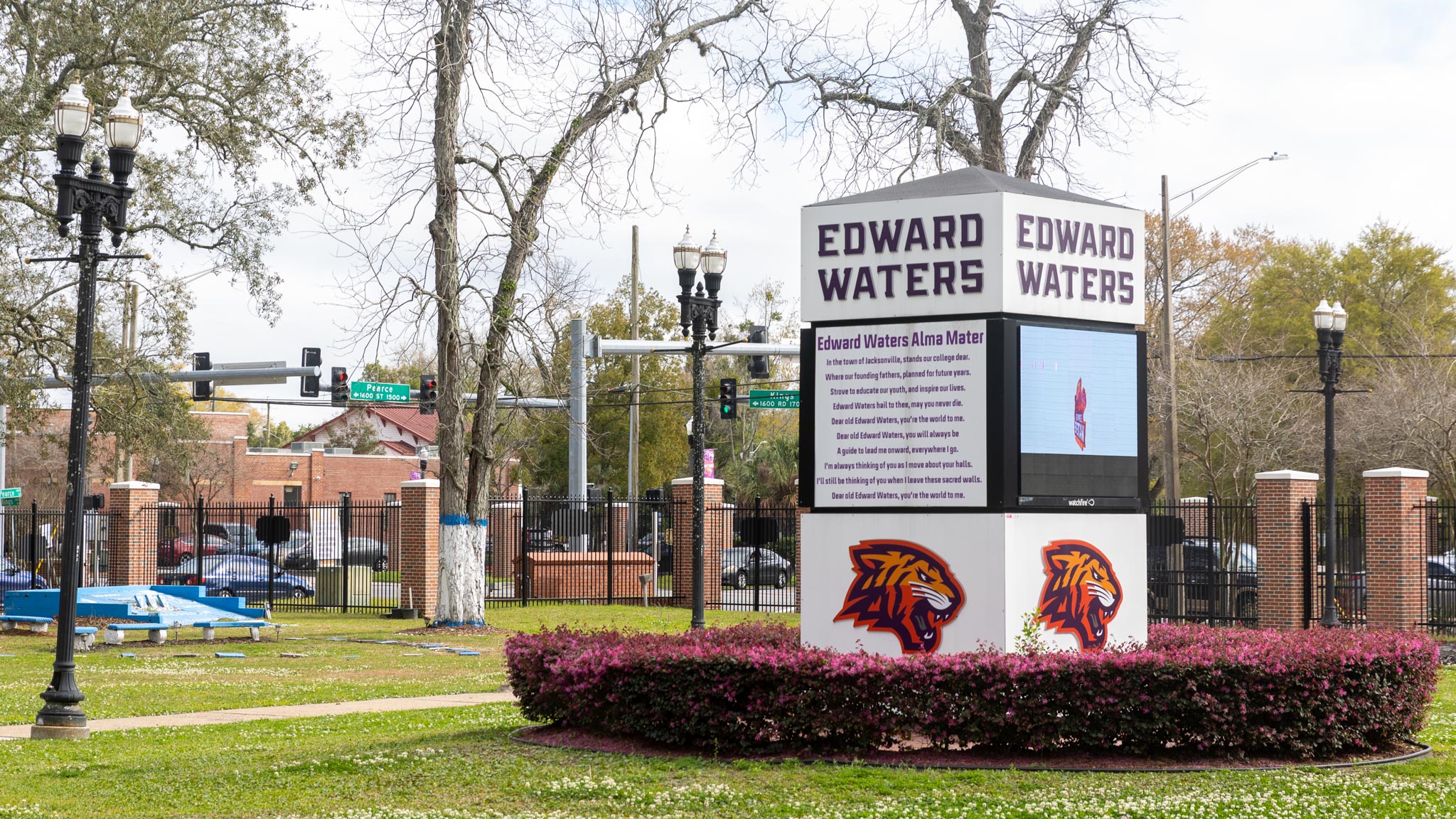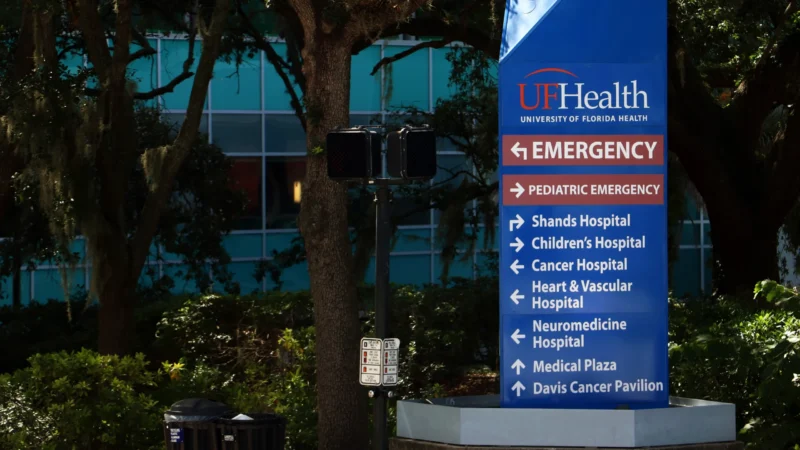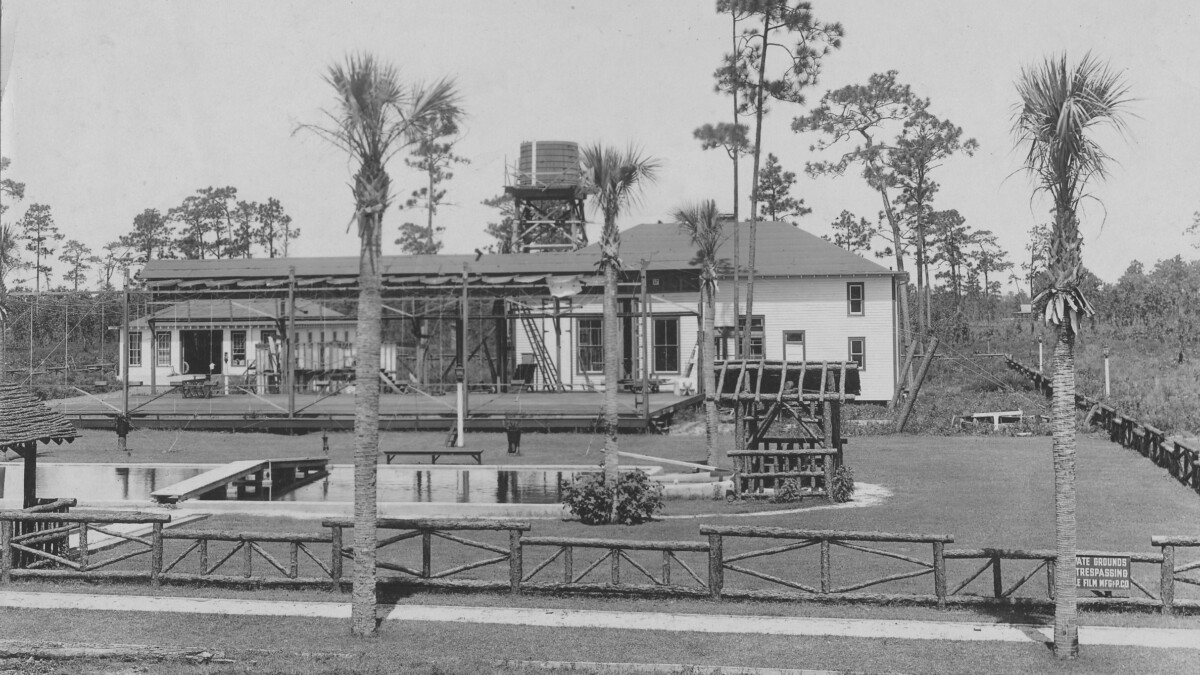The National Labor Relations Board filed a complaint against Edward Waters University last Thursday for shutting down its faculty union, setting the stage for a November trial that could have far-reaching implications for labor rights at religious institutions.
An NLRB judge will hold the trial Nov. 5, the same day as a presidential election that could shift or solidify the agency’s approach to labor rights and cases like this.
In May 2022, the historically Black university in Jacksonville scrapped its nearly 21-year-old contract with the faculty union, citing its “core values and Christian tenets,” as The Tributary previously reported. The Edward Waters College Chapter of the American Association of University Professors went on to file a charge with the NLRB, alleging the university’s failure to recognize and bargain with the union violated federal labor law.
EWU’s action is part of a growing trend of religious schools citing exemptions to stop recognizing faculty unions, enabled by a 2020 NLRB decision that cleared the way for institutions to do so.
Jacksonville City Councilman Rahman Johnson, who was a professor at EWU when it stopped recognizing its faculty union, was part of the team renegotiating the contract between the union and administration.
He and the other members of the bargaining team received the letter withdrawing recognition of the union while in the middle of negotiations, he said. “Honestly, it blindsided us.”
According to the NLRB’s complaint, EWU stopped bargaining with its faculty union and made drastic changes that would have violated the old contract. The complaint lists 13 such changes, including halting the grievance procedure, eliminating an agreed-upon faculty tenure committee, shutting down the music and education programs, and laying off faculty members.
The federal agency issues a complaint only when it finds sufficient evidence to support the charge. Last year, only 4% of unfair labor practice charges went to an administrative law judge. A majority of cases were either withdrawn or settled. The parties have time until the November trial to settle the case.
Kenneth Davis, the faculty union president, said there have been settlement talks between the union and the university to reinstate bargaining rights. However, he did not know their current status and was unsure if a settlement would be reached.
EWU’s attorney declined to comment. Both the university’s board chairman and its president, A. Zachary Faison Jr., did not respond to requests for comment. The university has until Sept. 12 to file an answer to the complaint with the NLRB.
EWU is not the first university to cite “religious exemption” from the National Labor Relations Act while shutting down unions. A 2020 decision by the NLRB and a federal court decision that year cleared the way for more religious schools to stop bargaining with faculty unions.
The three-part test for religious exemption is very easy to satisfy, said William Herbert, a lecturer researching higher education unions at Hunter College, City University of New York.
“One is whether or not the institution holds itself out as a religious institution,” Herbert said, “The second is that it’s a nonprofit, and the third is that it’s religiously affiliated.”
The verdict reversed a standard set by the board during the Obama administration that applied the religious exemption only if faculty had to perform a religious function for the university.
On his first day in office, Joe Biden fired the Trump-appointed NLRB general counsel. The Biden-appointed NLRB general counsel has so far prosecuted only one other case of a school refusing to bargain with its union because of a religious exemption.
A year after the Bethany College ruling, Florida’s Saint Leo University also notified its faculty that it would no longer recognize its faculty union, citing its “Catholic roots.” The NLRB judge wrote that under the Trump-era precedent, he must rule in favor of the university, which easily met the three-part criteria for religious exemption.
The NLRB general counsel has appealed that ruling and asked the labor board to return to the prior Obama-era standard. That case is still pending.
The NLRB generally does not make rulings without a case present, and Saint Leo’s is the first chance the board has to reverse the Bethany College decision.
The outcome of these cases could hinge on who wins the presidential election.
Lynn Rhinehart, a fellow at the left-leaning Economic Policy Institute think tank and a former senior counsel to the U.S. labor secretary, said the difference between a Trump-backed NLRB and a Biden-backed board “could not be more stark.”
In cases like the Bethany College decision, the Trump-backed board excluded workers from the protections of labor law, she explained.
Trump brought in management-side lawyers who favored corporate interests, Rhinehart said, while the Biden administration brought in union-side lawyers who have sided with workers in labor disputes.
“If Vice President Harris wins, I would expect to see her continue the pro-worker policy of the Biden-Harris administration because she’s been part of this for 3½ years,” Rhinehart explained. “If former President Trump wins, I think that’s really bad news for workers because he will appoint people who will take away their rights.”
This story is published through a partnership between Jacksonville Today and The Tributary.







